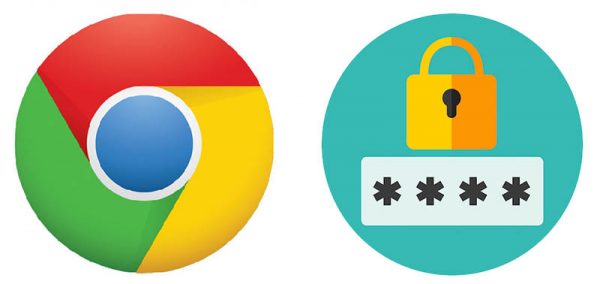Top 10 Tips That Will Help You Secure Passwords in 2019

Have you made any New Year's resolutions yet? Maybe you decided to take your health under control, or maybe you decided to read more. Whatever it is, we suggest adding one more goal, and that is to take care of password protection. Do not be afraid, it is no rocket science, and with our tips on best password security practices, you will be on track to success in no time.
Unfortunately, your passwords are not safe. That doesn't mean that you need to fall to the ground and roll into a ball. Many believe that protecting themselves in the digital world is practically impossible. And yes, we keep learning about new cybersecurity threats every day, and big companies continue getting attacked successfully. Cyber attackers are also finding new ways to attack us. That being said, although it is impossible to guarantee 100% password protection – that is, unless you delete all your accounts, erase your digital presence, and go hide under a rock – there are things that can help you improve your virtual security significantly.
Table of Contents
1. Ditch the weak passwords
We already know what the most popular passwords in 2018 were, and it is pretty shocking. Although users know that 123456, password, qwerty, iloveyou, or abc123 are some of the weakest passwords, they continue to use them. Unfortunately, you will never be able to take password protection under control with such passwords. Why? The reason is pretty simple: Such passwords are used by people because they are memorable, and because they are used by many, it is easy for cyber attackers to just guess them. In most cases, usernames are already available publicly (e.g., your social media profile name is also the username), and so it does not take any time at all for an attacker to break the lock and take full control of your profile or account.
2. Learn how to create a strong password
The sad reality is that the password you come up with yourself is unlikely to be strong enough if cyber attackers target you. Any dictionary word with a number attached at the end is an easy puzzle to solve, and attackers don't even need to handle it themselves. They have software and hardware to do the guessing game for them. If you want to ensure password protection, you want to create strong passwords, and that is not always an easy task. Luckily, password generators exist, and they can create long, complex, and impenetrable passwords within milliseconds. Of course, remembering such passwords is a problem of its own.
3. Find a reliable password manager
A password manager is primarily offered to users as a tool that can save all of their passwords. But it can do much more than that. Cyclonis Password Manager, for example, can also generate and encrypt passwords to ensure complete password protection. Furthermore, it also can offer you to auto-fill login forms for easy access, and it can assess already used passwords to help you determine whether or not they are strong enough. The best part is that this tool is free for all users across different platforms, and so it really cannot hurt to try it out. If you choose a third-party password manager, be careful and do your research because you do not want to download or even invest in software that cannot meet your expectations.
4. Check your passwords
Unless you use a password manager that can update your passwords automatically, it is unrealistic that you would change all weak passwords you use. Unless you have all of them written down somewhere (please refer to step 5 why that is a terrible idea), you might not even remember all of the accounts you have or all of the passwords you have used. However, if password protection is something you are worried about, you should really get in the habit of testing your passwords. We suggest doing that as soon as possible, of course. If you use a password manager, it will test your passwords' strength automatically. Another thing you can do is check whether or not your password has been hacked already. Tools capable of doing that are available online.
5. Stop storing your passwords in unsafe ways
If you are one of those people who still use post-it notes to write down their passwords, think carefully whether that is one of the best password security practices. Of course, it is not. Unless you live alone and do not invite people over, anyone could find your passwords and use them against you. This is, without a doubt, most dangerous in offices and public spaces. Storing passwords in unprotected files within your computer is not safe either. Malware can slither in and read your passwords or even destroy the file, which could lead to password recovery problems. If you MUST write down your passwords on a piece of paper or store it in a file, make sure you think of the consequences too.
6. Do not recycle passwords
Yes, creating one strong password can be challenging enough, which is why some users believe that once they do that, they can reuse the same password over and over again. The thing is that no password is ever strong enough. All passwords can be cracked, and while the chances of that happening are much lower if you take note of the best password security practices, you should never let your guard down. Every account you use, every profile you set up, every device you own must be protected using a unique password/passcode/pin/etc.
7. Change passwords
Some might tell you that you need to change your passwords every month or even more frequently. That is unnecessary. Of course, if that makes you sleep better at night, go for it, but do not forget steps 2 and 6. If you change your passwords frequently, you might forget about best password security practices, and you might start replacing strong passwords with those that are easier to come up with and remember. This would be a mistake. That being said, you should change your passwords immediately if you know they are weak or have been breached. This is why it is so important to stay on top of the latest security news.
8. Stay on top of security news
If you go straight to the Entertainment section when you open any news website, we suggest changing your habit this year. At least skim through the titles of the latest news to see what is happening in the world. That might be the fastest way for you to learn about major data breaches and password security issues. The sooner you learn about a password breach, the sooner you can take action. If you want easy and comprehensible access to password security and password protection-related news, you can always check-in with us.
9. Stay guarded against phishing attacks
Some attackers use phishing scams to steal users' passwords. It does not take long for them to set up a scam website, a scam spam email, or a similar tool to trick gullible users into disclosing private information about themselves. Overall, remember that if someone is asking you to confirm your password via a strange website or a strange email, you should not do it. Even if you are contacted by someone you might think you know (e.g., your bank), you should never disclose your passwords. Keeping your password to yourself is, without a doubt, one of the best password security practices.
10. Do not forget about two-factor authentication
To dot the i's and cross the t's, we must not forget about two-factor authentication if we want to ensure complete password protection in 2019. We have already discussed two-factor authentication, differences between it and multi-factor authentication, as well as security issues at length, and so we will not get into this much further. The bottom line is that IF someone guesses, brute-forces, or leaks your password, two-factor authentication will be the barrier that will help you protect your accounts long enough for you to change compromised passwords and take control of password protection.








